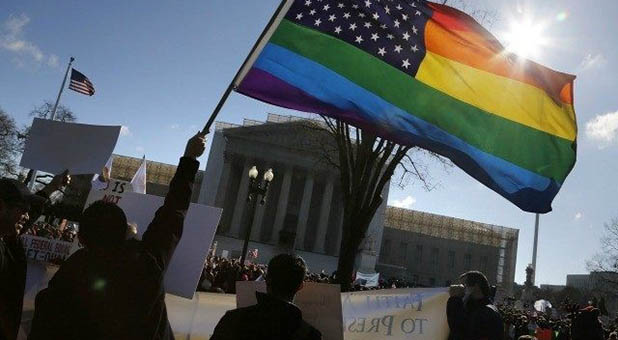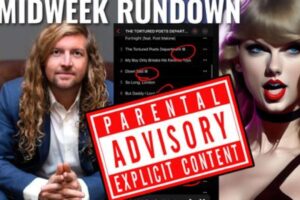Rod Dreher’s new book The Benedict Option: A Strategy for Christians in a Post-Christian Nation (Sentinel, 2017) is an account of how, he says, America’s “culture wars” have ended. He thus suggests a way Christians can live in a post-Christian society.
Before considering those propositions from Dreher, we first might consider what “culture wars” means. My “man-in-the-street” talks with people suggest that most of them have no idea what is meant by “culture wars.”
Culture refers to the sum total of political, economic, religious and other institutions that constitute the fabric of a society. A Christian worldview has been the warp and woof of America’s social fabric since its colonial founding. Of course, this does not mean that all Americans have been Christians. Rather, it means that many people and institutions in America assumed the truth of Christianity’s basic principles. Among those principles are the following: There is a Creator-God (theism) who says who He is, who man is, why we are here and how we should live. In this sense, American culture has been Christian since its founding. Nevertheless, another view has slowly replaced it.
Dreher discusses the roots and development of this new view at length. “Secular humanism” is its name, and a principal assumption in it is the denial of the existence of a Creator-God. In other words, it is a non-theistic, man-centered view of reality. This is an important point because it is the antithesis of a Christian view of the world. While there were expressions of secular humanism in American experience before 1900, its most powerful expression flowered and grew since then. Significantly, it has come to dominate and suppress traditional Christianity in recent decades. The result? Christian influence in American culture has become anemic.
Though Dreher does not use the term, his description of recent cultural warriors, those hostile to Christianity, fits the profile of the radical progressive movement. Here, then, we have the elements of what “culture wars” are in America. They are a clash between America’s traditional Christian culture and the non-theistic, man-centered world of secular radical progressivism. This view substitutes worship of the state and its power in place of the worship of the God of Revelation. Such attitudes Dreher finds forcefully expressed in words by recently retired Pope Benedict XVI: “The Western World today lives as though God does not exist.”
This secular non-theistic view of society now defines and dominates most important spheres of American society, in Dreher’s view. These include higher-education faculty, which surveys show 90 percent are populated by leftists and radical progressives. Indeed, kindergarten curricula is often designed by them. Further, the recent presidential election, and its aftermath, demonstrated that much of the political arena also is controlled by this social philosophy. In addition, this view also spilled over into a third important sphere of American society—government bureaucracy. Large numbers of its inhabitants were educated (indoctrinated?) by our universities’ radical faculty. Not surprisingly, bureaucratic people happily mimic their professors’ ideas.
What particularly troubles Dreher is the far-left’s virtual capture of the courts and legal system in American culture. It began with the Everson case in 1947, which questioned government payment for bussing students to private schools. Thereafter, in more than a dozen and a half cases, the Supreme Court denied the constitutionality of prayer and the use of Christian symbols in schools and other public places. The cross and the Ten Commandments seemed to be special targets.
The crowning legal blow to Christianity in American culture, Dreher says, came in Obergefell v. Hodges (2015). Following a discussion of the rapid development of gay rights (whatever version) during the past decade and a half, Dreher summed up the significance of this case:
The U.S. Supreme Court Obergefell decision was the Waterloo of religious conservativism. It was the moment that the Sexual Revolution triumphed decisively, and the culture war, as we have known it since the 1960s, came to an end (emphasis added). In the wake of Obergefell, Christian beliefs about the sexual complementarity of marriage are considered to be an abominable prejudice—and in a growing number of cases, punishable.
This point bears emphasis: Christianity’s dominant influence in American culture since colonial days ended decisively with the Obergefell decision. From here, Dreher moves on to his second major point: a way for “orthodox” Christians to live in a post-Christian culture. He calls this “The Benedict Option.”
There are two parts to this theme, captured in the words theory and practice. Dreher introduces readers to a sixth-century monk, St. Benedict of Nursia, and explains how he saw his mission in the wake of Rome’s collapse. Benedict formed a community away from the main culture and developed regulations about how to live in it. Together, these regulations are called The Rule, or Benedict’s Rule. It focuses on spiritual, rather than on material, aspects of life. This is the crux of Dreher’s summary of Benedict’s thinking.
As for practicing this in the Western world today, Dreher has found many communities doing so. He calls them orthodox Christians, which to him means “Bible believing” Christians, people dedicated to living in culturally separated Christian communities. Many of them are located in the United States among Protestants and Catholics. (Dreher is Eastern Orthodox.) These constitute an example that he wants his readers to follow. He sees the new “dark ages” of non-theistic American culture lasting a very long time. For that reason, Christians need to band together in communities to survive.
The Benedict Option: A Strategy for Christians in a Post-Christian Nation is a very thought-provoking study, bubbling with interesting words and quotable phrases. As indicated, it raises a profound question, namely: How should Christians live in a post-Christian age? You will want to read this book, whether Roman Catholic or Protestant or Eastern Orthodox or other varieties of Christianity, if you desire to understand how your children and grandchildren can survive in the hostile, pagan culture that now dominates America. {eoa}
Dr. L. John Van Til is a fellow for humanities, faith, and culture with The Center for Vision & Values at Grove City College. His latest books are Thinking Cal Coolidge and The Soul of Grove City College: A Personal View.
This article was originally published at visionandvalues.org. Used with permission.
See an error in this article?
To contact us or to submit an article






















